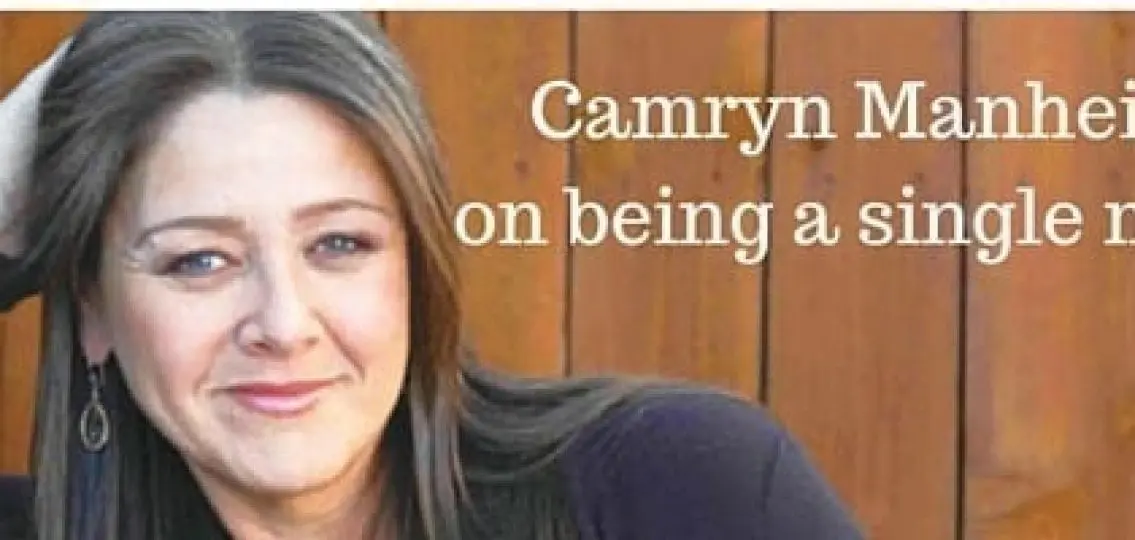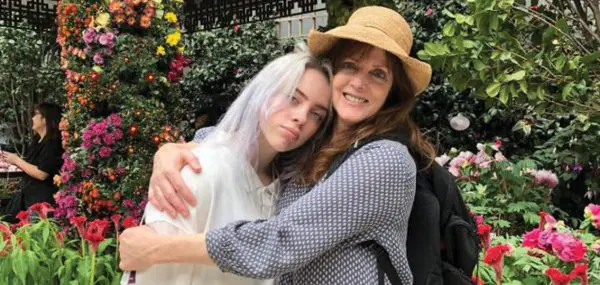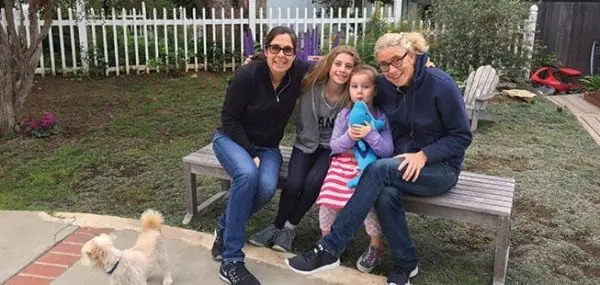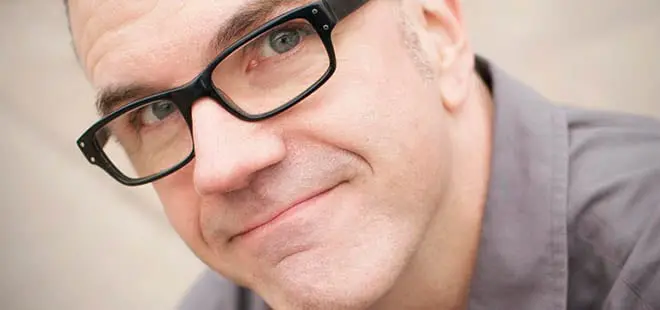“I won the lottery with my son,” says Camryn Manheim, the Emmy Award-winning actress. But after our wonderful interview with the star of The Practice and, more recently, The Ghost Whisperer, we can say for sure that her son did, too.
Interview with Camryn Manheim Of The Ghost Whisperer
Q: What was it like having your son Milo as an older mom?
Manheim: From as early as I can remember, I always knew I wanted to be a mother, but circumstances prevented me from doing that in the traditional way. I have always been a bit of a rebel, so following a traditional pattern wasn’t a deal breaker for me. As I approached 40, I considered all my options and chose to have a baby on my own. Toward the end of my pregnancy, I had one of those supersonic, fancy ultrasounds, and the doctor told me my son already weighed 9.5 lbs. O.M.G. I figured since I always said I was going to have a kid by the time I was 40, that I’d induce the sucker and get him out before he was too big to have the natural way.
Q: Is it hard to be a single parent?
Manheim: Yes and no. I was working on the television show, The Practice at the time, and I can certainly understand why people would think it’s hard to be on a television show and have a baby at the same time. Especially being a single parent. But the truth is, I never missed an episode of filming. I worked the week before my son was born, and I was back filming 10 days later. Even though we worked long hours, there was a fantastic community to help me. I had a crib in my dressing room, a nanny, and many doting cast mates and crewmembers. Other than a little sleep deprivation, it was easier than I thought it would be.
Now that I have a myriad of married friends, I’ve got to tell you, sometimes I feel lucky to be a single parent. So many of my friends have one or two children, but with their husbands, they have three children. Many of my friends envy me because it is just my son and me. Of course the downside is, it’s all on me–—the financial part, the physical part, the emotional part, and every single decision. Mostly that’s a plus, but sometimes I wish I had a little back up.
Q: As Milo is hitting adolescence, are you able to pivot into this new stage?
Manheim: I don’t normally miss having a partner in the house, but it would be great to have these deep and powerful discussions about this new stage with a co-parent. So, I go to a lot of lectures about parenting. All the schools in our neighborhood have fantastic speakers. These forums and discussions really help me navigate this interesting and tricky time. Lectures are my other parent; I learn from them, and I do change my parenting style when someone really resonates with me.
Our school also has parent councils and parent coffees once a month. These meetings are a great forum for us to discuss any issues we are facing in hopes of getting some insight from our community.
Q: Do you feel like you can be honest in these groups?
Manheim: Yes, because I feel like our community has so many common threads. I am a regular person with a regular kid, and we have challenging times like everyone else. I am very interested in other people’s experiences with their older children, and I’m honest in expressing what’s happening with my kid. The best way for me to get help is to be honest and thoughtful about what is going on. In general, the themes are very universal.
Q: Do you have similar discussions with your friends?
Manheim: There are certain friends to whom I’ve given verbal and non-verbal permission to help, guide, advise, and offer constructive criticism, when necessary. Their observations about my parenting and about my son won’t jeopardize our friendship, as long the observations come from a place of love.
Q: Do you know that not everyone has those friendships?
Manheim: I know it’s unusual; it’s just a scattered few people who I have come to know and trust. I also know that some families don’t invite that kind of communication, so I don’t give it. It’s tricky—we want others to see our parenting as exceptional. We care so much about being great parents. And we don’t really want to hear what other people are observing, sometimes, because we don’t value their opinion and often because we don’t want to take a closer look. Because I’m a single parent, I don’t have another parent holding me accountable for my decisions. I have to look to trusted friends to challenge me to be thoughtful about my parenting.
Q: How do you deal with social media issues?
Manheim: It really does take a village to combat social media. While parents sit around and complain about their kids texting too much, they are also the ones buying the technology and giving their children unlimited access to the internet. This is such a tricky time for our kids, socially, and I know how important it is to my son to be plugged into the “Z” generation. I struggled for a long time before making the decision to get him a smartphone. I made him handwrite a two-page contract, stating with all the things that I expected from him. A few of the points were:
- My mother will always have my password. If I ever change my password without her knowledge, my phone will be confiscated indefinitely.
- My mother will always be allowed to read my texts and emails to keep me safe.
- I will never give out personal and private information about myself or my family.
- I will never use harsh words or profanity.
- I will never bully anyone.
- I will tell an adult if I ever witness bullying.
- I will let an adult know if I ever feel like I am a victim of bullying.
I know my son isn’t a saint. He will make mistakes and hopefully learn from them. But I take texting, emails, and internet access very seriously. So far, I can tell you that my son has proven time and again to be an honorable person, and that makes me feel like I’m doing a good job so far. But let’s face it, he’s only 12. Ask me in two years how that’s going.
Q: What is the biggest change you have made around technology?
Manheim: I was very instrumental in making a “No Cell Phone Policy” at my kid’s school.
Q: How does the policy work?
Manheim: When we transferred to our current school, there was no cell phone policy in place. Students were just starting to get cell phones, and it hadn’t really been an issue in the past. The school thought that since cell phones were here to stay, maybe they could teach them to use them responsibly. They presumed kids would use their phones to take notes and write down homework assignments in their calendars. Along with a chorus of other parents, I begged the Dean to reconsider and suggested students could use a pen and paper—a crazy notion—and they could put the information into their phone at a later time. And then he asked me, “What about lunch?” And I said, “Lunch is the worst time to have a phone. Nobody will talk to each other.”
I was part of a group of people who were adamant. The school implemented a “no cell phone” policy on a trial basis. Many parents jumped on board and said it was a fantastic idea. The policy is now in its second year.
Q: Do you have any policies at home?
Manheim: There are no screens in his room. He has to finish all his homework before he can check in with his friends. He must plug in all of his electronics in the family room downstairs when he goes to bed at night. My son doesn’t have a Facebook account, nor do I think he will want one, because Facebook is totally on the way out. But there are always new social media platforms that he wants to join: Snapchat, Vine, Instagram, Twitter. I am so opposed to all of this. Honestly, I’m a little freaked out by technology, so I monitor him pretty closely.
Q: How does Milo feel about your celebrity status?
Manheim: He is slightly unfazed by it. He grew up on the set of The Practice and Ghost Whisperer. It’s been a part of his consciousness since he was born. He went to daycare at the studios where I shot The Practice, and he has known many public figures in his life. When he was younger and impatient, he didn’t like it when people stopped me on the street to take a photograph or get an autograph. He couldn’t understand why anyone was interested in me. But now he will say with pride, “That’s my mom. Yes, she was on The Practice, and she won an Emmy.”
Q: Does he have any interest in acting?
Manheim: The apple doesn’t fall far from the tree. He has been involved in musicals for the past six years. In fact, he just completed his 15th musical. He is a song and dance man—very talented and musical. It’s definitely his gift. He goes to performing arts camp in the summer, and he just started taking a serious acting class.
I lucked out. I won the lottery with my son. And, I am trying to make sure that I keep him as beautiful as he is now as he grows into a man. He is just a lovely person, and he makes it a pleasure for me to guide him through life.
Q: What have you learned as a parent?
Manheim: Right now, I’m learning how to give Milo independence—even when it makes me nervous. But, I know it is very essential for his growth. I’ve learned that I’m a work in progress and so is he. I learned to lead by example and to never stop seeking information. I’ve learned that you can raise boys to become sensitive, loving, creative, tenderhearted, and whimsical. I’ve learned that I will always need people to see things that I can’t see. But most of all, I’ve learned that I am not the most important person in the world. It’s a relief and it’s a burden, and I welcome every single second of it.




